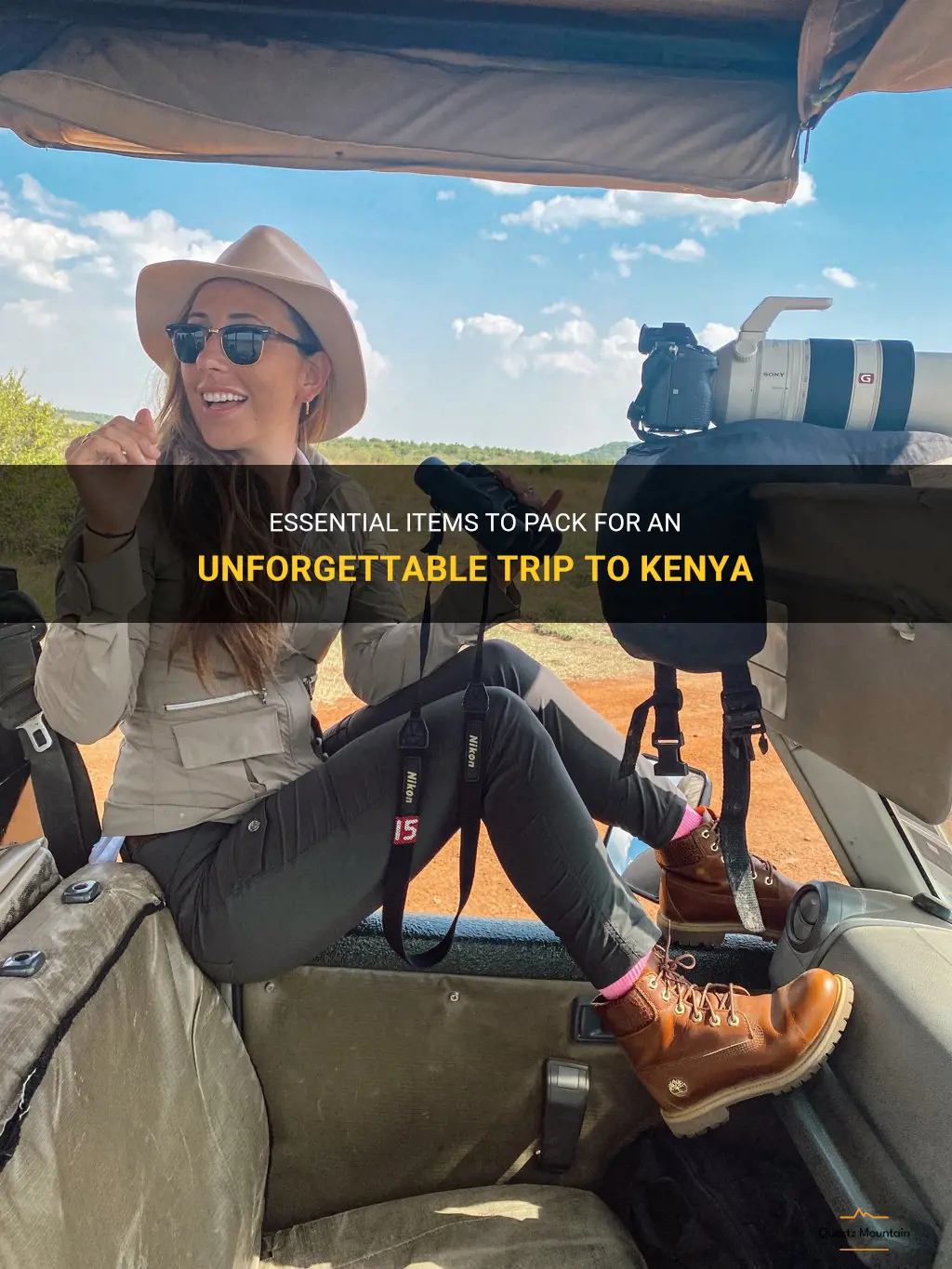
Are you planning a trip to Kenya? If so, you're in for an unforgettable adventure! From the stunning wildlife in Maasai Mara to the beautiful white sand beaches of Mombasa, Kenya has something for every traveler. But before you embark on your journey, it's essential to pack the right items to ensure a smooth and enjoyable experience. Whether you're a wildlife enthusiast, a sun seeker, or a culture lover, this guide will help you pack all the essential items you'll need for your trip to Kenya. So, get ready to create lifelong memories in this mesmerizing country.
| Characteristics | Values |
|---|---|
| Destination | Kenya |
| Weather | Hot |
| Clothing | Light and breathable |
| Footwear | Comfortable walking shoes |
| Medications | Malaria prophylaxis, First aid kit |
| Toiletries | Travel-sized toiletries |
| Electronics | Universal power adaptor, Camera |
| Documents | Passport, Visa, Travel insurance |
| Currency | Kenyan Shilling |
| Transportation | Flight, Transfers, Local transportation |
| Accommodation | Hotel, Safari lodge, Campsite |
| Activities | Safari, Wildlife viewing, Hiking, Beaches |
| Language | English, Swahili |
| Culture | Maasai, Swahili, Kikuyu, Luo |
| Food | Ugali, Nyama Choma, Chapati |
| Safety | Travel insurance, Emergency contacts |
What You'll Learn
- What essential items should I pack for a trip to Kenya?
- Are there any specific clothing items that I should bring for a trip to Kenya?
- What type of footwear is best for a trip to Kenya?
- Are there any specific toiletries or medications that I should include in my packing list for Kenya?
- Are there any important documents or travel essentials that I should not forget to pack for my trip to Kenya?

What essential items should I pack for a trip to Kenya?
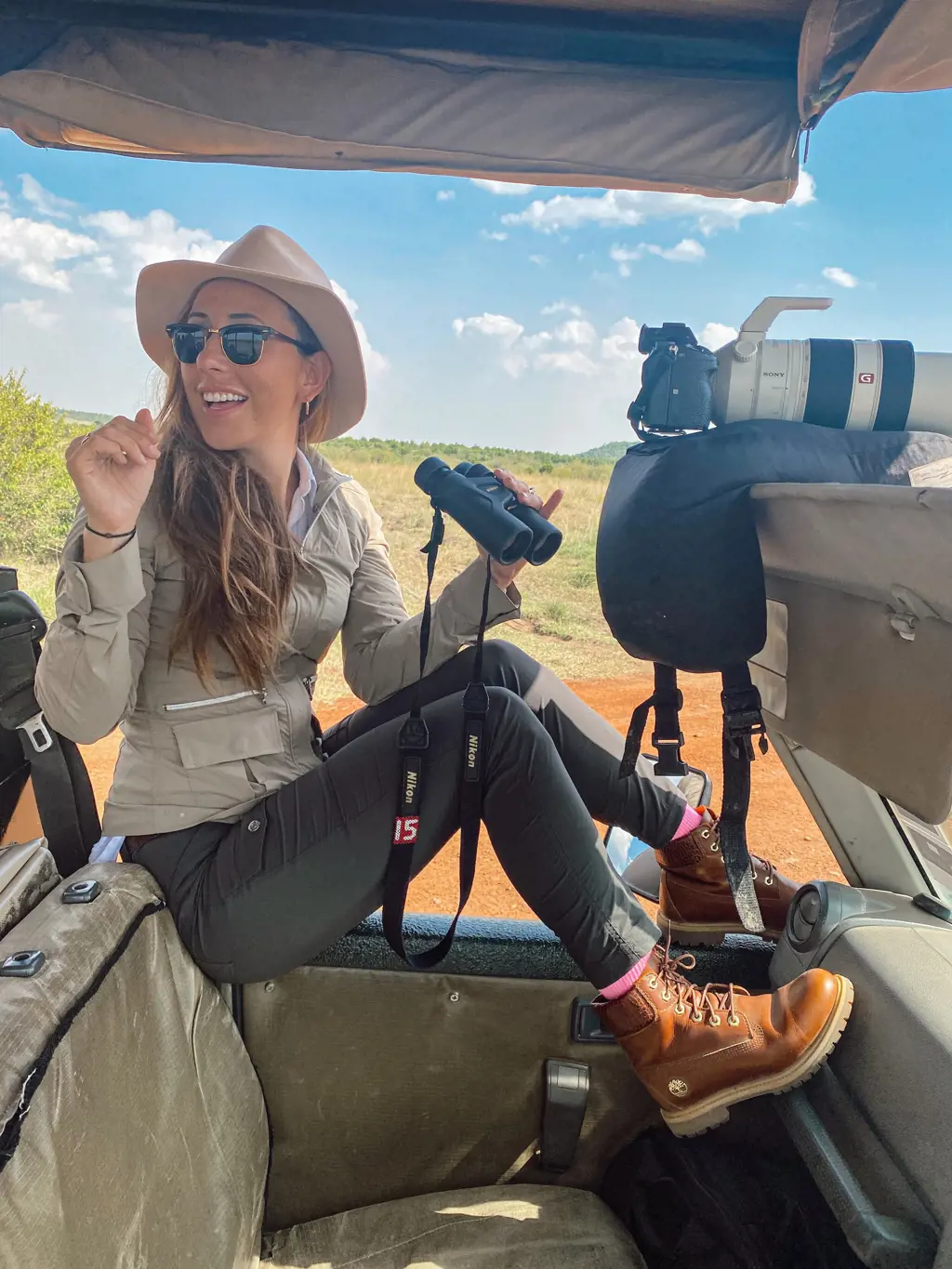
Traveling to Kenya can be an exciting adventure, full of unique experiences and breathtaking landscapes. Whether you're planning a safari through the Maasai Mara, exploring the vibrant city of Nairobi, or relaxing on the stunning beaches of Mombasa, it's important to pack the necessary essential items for your trip. Here are some must-have items to consider when packing for your journey to Kenya:
- Clothing: Kenya's climate can vary greatly depending on the region you're visiting. It's advisable to pack lightweight and breathable clothes, especially if you're visiting during the hot and dry season. Long pants and shirts with long sleeves can provide protection against the sun and insects. Don't forget to pack a hat and a pair of sunglasses for extra protection.
- Comfortable footwear: As you explore Kenya's outdoor attractions, comfortable footwear is essential. Hiking boots or sturdy walking shoes are a great choice for activities like hiking, game drives, and walking tours. Additionally, carrying a pair of sandals or flip-flops is a good idea for beach destinations.
- Insect repellent: Kenya is home to a variety of insects, including mosquitoes, which can transmit diseases such as malaria. It's crucial to protect yourself by using an effective insect repellent containing DEET. Make sure to apply it regularly, especially during dawn and dusk when mosquitoes are most active.
- Sunscreen and sun protection: The equatorial sun in Kenya can be intense, so it's essential to pack sunscreen with a high SPF. Protect your skin from harmful UV rays by applying sunscreen regularly, wearing a wide-brimmed hat, and using UV-protective clothing.
- Medications and first aid kit: It's always a good idea to carry essential medications and a basic first aid kit when traveling. Make sure to include any prescription medications you require, as well as over-the-counter medications for common ailments like headaches, allergies, and stomach upsets.
- Travel adapters and chargers: Kenya uses a different type of power outlet than many other countries. Don't forget to pack a travel adapter to ensure your electronic devices can be charged during your trip. It's also worth considering a portable charger to keep your devices powered up while on safari or during long journeys.
- Travel documents: It's crucial to keep your travel documents organized and easily accessible throughout your trip. Make sure to bring your passport, visa, travel insurance details, and any other necessary identification or documentation. It's also wise to keep electronic copies of these documents on your phone or in cloud storage.
- Money and cards: Carry a mix of cash and cards in Kenya, as some smaller establishments may only accept cash. Ensure you have enough local currency for your immediate expenses upon arrival. It's also wise to notify your bank beforehand to avoid any issues with your credit or debit cards while abroad.
- Water filtration system: While tap water is generally safe in major cities and tourist areas, it's advisable to drink bottled or filtered water. Consider packing a portable water filtration system to ensure access to clean drinking water during your travels.
- Travel insurance: Lastly, it's essential to have comprehensive travel insurance that covers medical expenses, trip cancellation, lost baggage, and emergency evacuation. Protecting yourself and your belongings with travel insurance will give you peace of mind during your trip to Kenya.
Remember to double-check the weather forecast for the specific locations you'll be visiting in Kenya and adjust your packing accordingly. By packing these essential items, you'll be well-prepared to enjoy the beauty and adventure that Kenya has to offer.
Ultimate Packing List for IMTA: Be Prepared for Success
You may want to see also

Are there any specific clothing items that I should bring for a trip to Kenya?
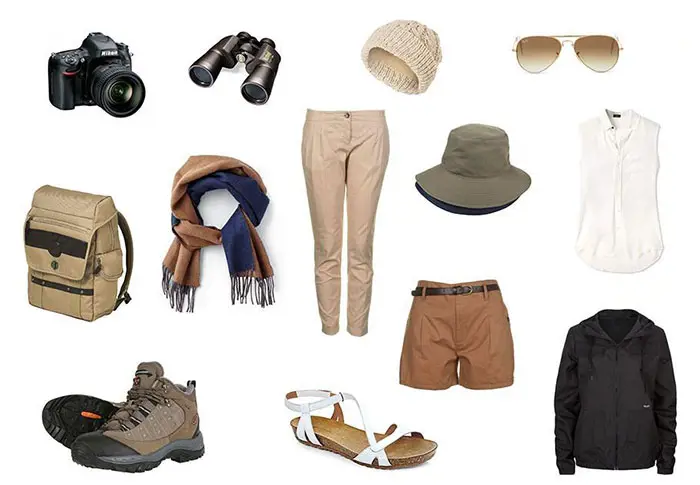
When planning a trip to Kenya, it's essential to pack the right clothing items to ensure both comfort and appropriateness for the local culture. Kenya has a warm and tropical climate, but it also has a diverse landscape and varying elevations, so it's important to pack a mix of clothing to accommodate different weather conditions. Here are some specific clothing items that you should consider bringing for a trip to Kenya:
- Lightweight and breathable clothing: Kenya's average temperature is around 25°C (77°F), so it's recommended to pack lightweight and breathable clothing to stay cool. Opt for loose-fitting shirts, shorts, skirts, or dresses made from natural fabrics such as cotton or linen. These fabrics allow airflow and help to wick away moisture, keeping you comfortable in the hot and humid climate.
- Long-sleeved shirts and pants: Despite the warm weather, it's a good idea to pack some long-sleeved shirts and pants. These will protect you from the sun's rays during outdoor activities and help prevent insect bites. Opt for lightweight and breathable materials, such as lightweight cotton or nylon blends, that will keep you cool while still providing coverage.
- Sun protection: Kenya experiences high levels of sunshine, so it's vital to pack sun protection items. A wide-brimmed hat will shield your face and neck from the sun, and sunglasses will protect your eyes. Additionally, pack a high SPF sunscreen to protect your skin from harmful UV rays. Remember to reapply sunscreen regularly, especially if you are spending a lot of time outdoors.
- Comfortable walking shoes or hiking boots: Kenya offers a range of outdoor activities, such as safaris and hiking, so it's important to have comfortable shoes. If you plan on spending a lot of time in urban areas, opt for comfortable walking shoes or sandals. If you plan on hiking or exploring national parks, bring sturdy hiking boots that provide ankle support and grip on various terrains.
- Swimwear: Kenya has stunning beaches along its coastline and on islands like Lamu, so don't forget to pack your swimwear. Whether you plan on relaxing on the beach or taking part in water activities like snorkeling or scuba diving, having swimwear is essential.
- Light rain jacket or poncho: Kenya has two rainy seasons, the "short rains" from October to December and the "long rains" from March to May. If you are traveling during these periods, bring a light rain jacket or poncho to stay dry and comfortable during unexpected showers.
- Conservative clothing for cultural visits: Kenya is a diverse country with multiple cultures and religions. When visiting religious sites or interacting with local communities, it's important to respect their traditions and dress modestly. Women should carry a scarf or shawl to cover their shoulders and knees when entering religious sites or visiting conservative areas.
Remember to pack enough clothing for the duration of your trip and consider doing laundry if you plan on staying for an extended period. It's also a good idea to check the weather forecast for the specific regions you plan on visiting in Kenya to ensure you pack accordingly. By packing the right clothing items, you'll be well-prepared to enjoy your trip to Kenya comfortably and respectfully.
Essential Items to Pack for a Long Weekend in Cabo, Mexico
You may want to see also

What type of footwear is best for a trip to Kenya?
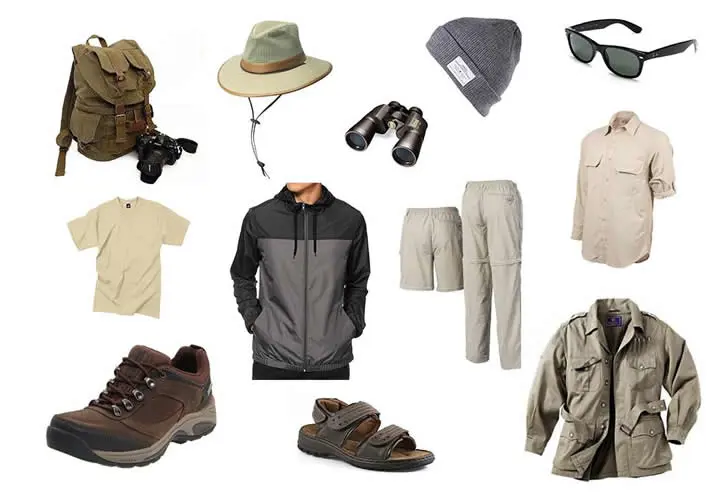
When planning a trip to Kenya, it is important to consider the type of footwear that is best suited for the activities and terrain you will encounter. Kenya is a diverse country with different landscapes, ranging from savannahs and mountains to coastal areas and urban centers. The right footwear can enhance your overall experience and ensure that you are comfortable and protected throughout your trip.
- Consider the Weather: Kenya has a varied climate, so it is crucial to choose footwear that suits the weather conditions during your visit. If you are traveling during the dry season (January to March and July to October), lightweight and breathable shoes are ideal. Sneakers or hiking shoes with good traction are suitable for exploring the wildlife parks and game reserves.
- Opt for Comfort: Comfort should be a top priority when selecting footwear for your trip. You will likely be doing a fair amount of walking or hiking, so choose shoes that have sufficient cushioning and arch support. It is advisable to break in your shoes before your trip to prevent blisters or discomfort.
- Protection from Insects and Snakes: In certain parts of Kenya, especially in the savannahs and forests, there is a risk of encountering insects and snakes. Therefore, closed-toe shoes or boots are recommended to protect your feet from potential bites or stings. Additionally, wearing socks can provide an extra layer of protection.
- Consider Cultural Etiquette: If you plan on visiting local communities or cultural sites, it is important to respect their traditions and adhere to their footwear customs. For instance, some places may require you to remove your shoes before entering temples, mosques, or homes. Lightweight slip-on shoes or sandals can be a practical choice for these situations.
- Pack for Versatility: To be prepared for various activities and destinations, choose footwear that can adapt to different terrains. If you plan on hiking in the mountains, having sturdy hiking boots with ankle support is crucial. For coastal areas, sandals or water shoes with good grip are perfect for walking on sandy beaches or swimming in coral reefs.
- Consider Personal Preference: Ultimately, the choice of footwear depends on your personal preference and comfort. Consider the types of activities you enjoy the most and the duration of your trip. If you enjoy running, pack a pair of running shoes so you can continue your exercise routine. Similarly, if you plan on going on safari, opt for comfortable closed-toe shoes for game drives.
In conclusion, the best footwear for a trip to Kenya will depend on various factors such as weather, terrain, activities, and personal preference. It is important to have a versatile selection that includes lightweight sneakers or hiking shoes, closed-toe shoes or boots for protection, and sandals or slip-on shoes for cultural sites and beach areas. By choosing the right footwear, you can ensure a comfortable and enjoyable trip to Kenya.
Essential Items to Pack for Your Childcare Needs
You may want to see also

Are there any specific toiletries or medications that I should include in my packing list for Kenya?

When traveling to Kenya, it’s important to be prepared and pack the necessary toiletries and medications to ensure a comfortable and healthy trip. While some items may be readily available in local shops, it is advisable to bring certain products from home to ensure you have everything you need. Here is a list of specific toiletries and medications you should include in your packing list for Kenya:
- Mosquito repellent: Kenya is known for its mosquito population, and it is essential to protect yourself from mosquito bites to prevent mosquito-borne illnesses such as malaria. Pack a mosquito repellent containing DEET and apply it regularly to exposed areas of skin.
- Sunscreen: Kenya is located near the equator, which means that the sun's rays can be intense. Protect your skin from sunburn by packing a high SPF sunscreen. Make sure to apply it generously and reapply it throughout the day, especially if you are spending time outside.
- Oral rehydration salts: Traveler's diarrhea is a common issue when visiting Kenya. To prevent dehydration, it is crucial to have oral rehydration salts on hand. These packets dissolve in water and help replenish lost fluids and electrolytes.
- Anti-diarrheal medication: Despite taking precautions, you may still experience traveler's diarrhea. Pack some over-the-counter anti-diarrheal medication to help alleviate symptoms and restore normal bowel movements. Remember to consult a healthcare professional before taking any medication.
- Water purification tablets: Tap water in Kenya is not safe to drink. Carry water purification tablets or a water filter bottle to ensure that the water you consume is free from harmful bacteria and parasites.
- Insect bite cream: In addition to mosquito repellent, pack an insect bite cream or ointment to soothe any bug bites or stings. This will provide relief from itching and help prevent infections.
- Prescription medications: If you are on any prescription medications, make sure to pack an ample supply for the duration of your trip. Carry them in their original packaging, along with a copy of the prescription, in case you need to replenish your supply while in Kenya.
- First aid kit: It's always a good idea to carry a basic first aid kit when traveling to any destination. Include items such as band-aids, adhesive tape, gauze pads, antiseptic cream, and pain relievers. These will come in handy for minor injuries or illnesses.
- Personal hygiene products: Bring your preferred personal hygiene products, such as toothpaste, toothbrush, shampoo, conditioner, soap, and any other items you use on a daily basis. While you may find these items in local stores, it is always better to have the brands you are familiar with.
Remember to check the travel restrictions and guidelines of the airline and country you are flying to, as some medications may require special authorization or documentation. It's also recommended to consult with a healthcare professional or travel clinic before your trip to discuss any specific health concerns or vaccinations you may need for traveling to Kenya.
In conclusion, packing the necessary toiletries and medications for your trip to Kenya is essential for a comfortable and healthy journey. By including items such as mosquito repellent, sunscreen, oral rehydration salts, and prescription medications, you'll be prepared for any potential health issues that may arise during your stay. Stay safe and enjoy your trip!
The Essential Items to Pack for a Successful Interview
You may want to see also

Are there any important documents or travel essentials that I should not forget to pack for my trip to Kenya?
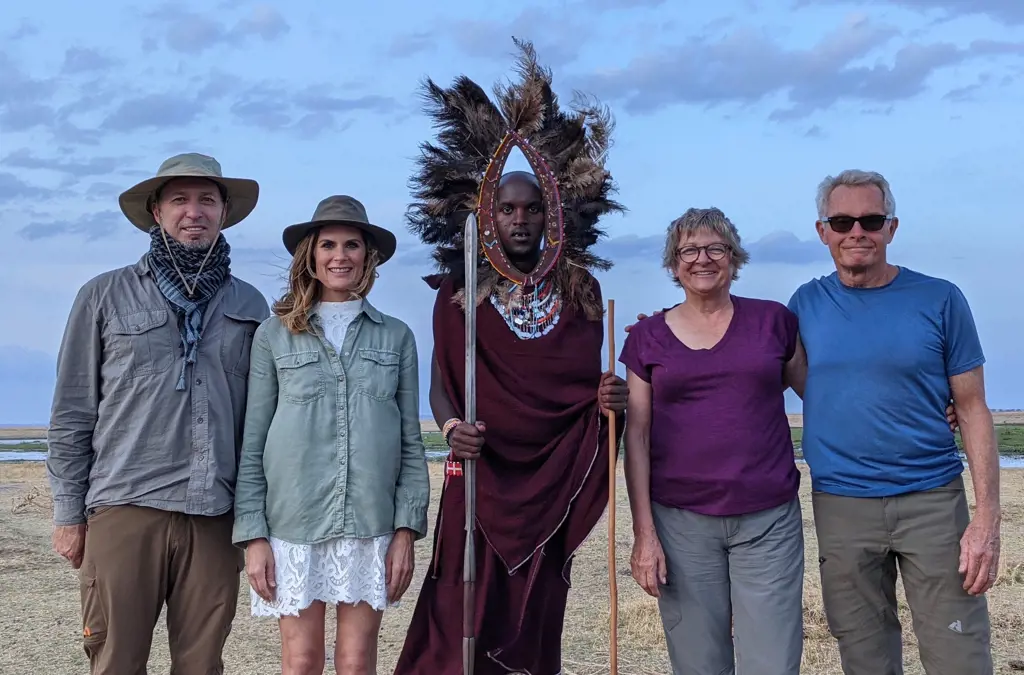
When traveling to Kenya, it is important to make sure you have packed all the necessary documents and travel essentials to ensure a smooth and stress-free trip. Whether you are going on a safari adventure or exploring the vibrant city of Nairobi, here are some important items you should not forget to pack:
- Valid Passport: Your passport is the most important travel document you need to have. Make sure it is valid for at least six months beyond your intended stay in Kenya. It is also advisable to carry a photocopy of your passport in case of loss or theft.
- Visas: Depending on your nationality, you may need a visa to enter Kenya. Check the visa requirements well in advance and apply for one if necessary. You can either obtain a visa on arrival or apply for an eVisa online before your trip.
- Yellow Fever Certificate: Kenya requires travelers arriving from certain countries to have a valid Yellow Fever vaccination certificate. Check if you need this vaccination before traveling and make sure to carry the certificate with you.
- Travel Insurance: It is highly recommended to have travel insurance to cover any unexpected events such as medical emergencies, trip cancellations, or lost luggage. Make sure your insurance policy covers the activities you plan to engage in, such as wildlife safaris or adventure sports.
- Medications and First Aid Kit: If you have any prescription medications, make sure to pack them along with a copy of the prescription. It is also advisable to carry a basic first aid kit with essentials like band-aids, antiseptic creams, and pain relievers.
- Cash and Credit Cards: While credit cards are widely accepted in major cities and tourist areas, it is a good idea to carry some cash in local currency (Kenyan Shilling) for smaller establishments or situations where cards may not be accepted. ATMs are available in most cities for cash withdrawal.
- Power Adapter: Kenya uses Type G power sockets, so make sure to bring a power adapter if your devices use a different type of plug. This will ensure you can charge your electronic devices without any issues.
- Insect Repellent and Sunscreen: Kenya is known for its wildlife and outdoor activities, so it is important to protect yourself from insects and harmful sun rays. Mosquitoes can be a concern in certain areas, so pack a good quality insect repellent. Don't forget to bring sunscreen with a high SPF to protect your skin from the African sun.
- Lightweight Clothing and Comfortable Shoes: Kenya has a warm climate, so pack lightweight and breathable clothing. Loose-fitting, long-sleeved shirts and pants are advisable for protection against both insects and the sun. Also, bring comfortable shoes for walking and hiking as you may be exploring national parks or going on nature trails.
- Binoculars and Camera: Kenya offers incredible wildlife viewing opportunities, so make sure to bring binoculars to enhance your game drives and bird watching experiences. Additionally, a good camera with extra memory cards and batteries will help capture the stunning landscapes and wildlife moments.
Remember to check the weather conditions before your trip and pack accordingly. It's always a good idea to make a packing list well in advance and double-check it to ensure you haven't forgotten any essential items. With the right documents and travel essentials, you can fully enjoy your trip to Kenya and create memories that will last a lifetime.
The Art of Choosing: A Woman Contemplates What to Pack
You may want to see also
Frequently asked questions
When packing for a trip to Kenya, it's important to consider the weather, activities you'll be doing, and cultural norms. Here are some essentials to include in your packing list. First, pack lightweight and breathable clothes, such as loose-fitting cotton shirts and pants, as the climate is generally hot. Don't forget to bring a light sweater or jacket for cooler evenings or higher altitudes. Also, bring comfortable walking shoes or sandals for exploring. In terms of toiletries, include sunscreen, insect repellent, and any necessary medications.
Yes, if you're planning on going on a safari in Kenya, there are a few specific items you should pack. First, bring a good quality pair of binoculars for wildlife spotting. A camera with a telephoto lens is also useful for capturing the incredible wildlife and landscapes. It's a good idea to pack a hat, sunglasses, and a long-sleeved shirt or lightweight jacket for sun protection and protection against mosquitoes. Finally, don't forget a daypack or small bag to carry water, snacks, and any personal items you might need during the safari.
Yes, it's important to be mindful of the local culture when packing for your trip to Kenya. While the country is relatively relaxed, it's still respectful to dress modestly, especially when visiting religious or conservative areas. Avoid packing revealing clothing or clothing with offensive slogans or graphics. Additionally, it's a good idea to pack a lightweight scarf or shawl that can be used to cover your shoulders or head if needed, especially when visiting mosques or rural areas.







